Openfabric AI
Openfabric AI is a Layer 1 protocol that aims to advance Artificial Intelligence by utilizing blockchain, cryptography, and infrastructure to support AI applications.[1]
Overview
Founded in 2019, Openfabric AI is a Layer 1 protocol designed to advance Artificial Intelligence through the use of blockchain technology and cryptography. It aims to improve AI scalability and flexibility while addressing challenges such as vendor lock-in and infrastructure demands.
The protocol seeks to simplify the use of AI applications for individuals with limited technical expertise and to promote fair competition within the AI market. Its dynamic consensus model supports parallel decision-making and provides fault tolerance. Core features include decentralization, usability, security, interoperability, and scalability, all developed through comprehensive research and validation.[1][2][3][4]
Products
AI Xplorer
AI Xplorer is a decentralized application that aims to facilitate interaction with AI applications. It seeks to simplify the integration of AI apps, supports payments via MetaMask, and allows users to rate AI apps, rent computing power, or monetize datasets. The platform provides a user-friendly interface for searching and discovering AI services.[5]
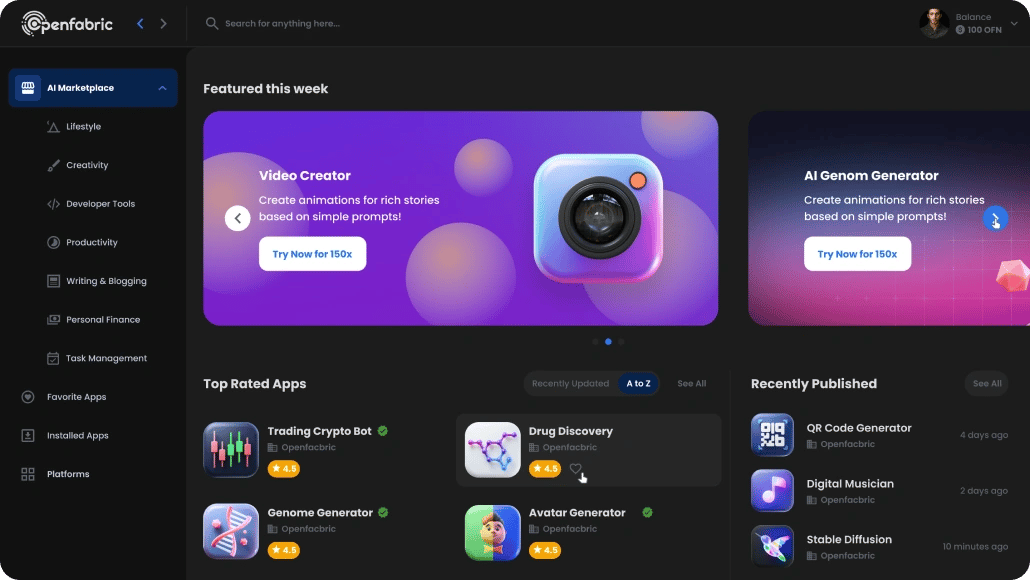
Artfabric AI
Artfabric AI is a tool that aims to convert text prompts into images. It operates on platforms like Discord and Telegram, and is accessible via smartphones, laptops, and desktops. Users can generate images using the /imagine command, with the app designed to offer a flexible method for creating visuals from text.[6]
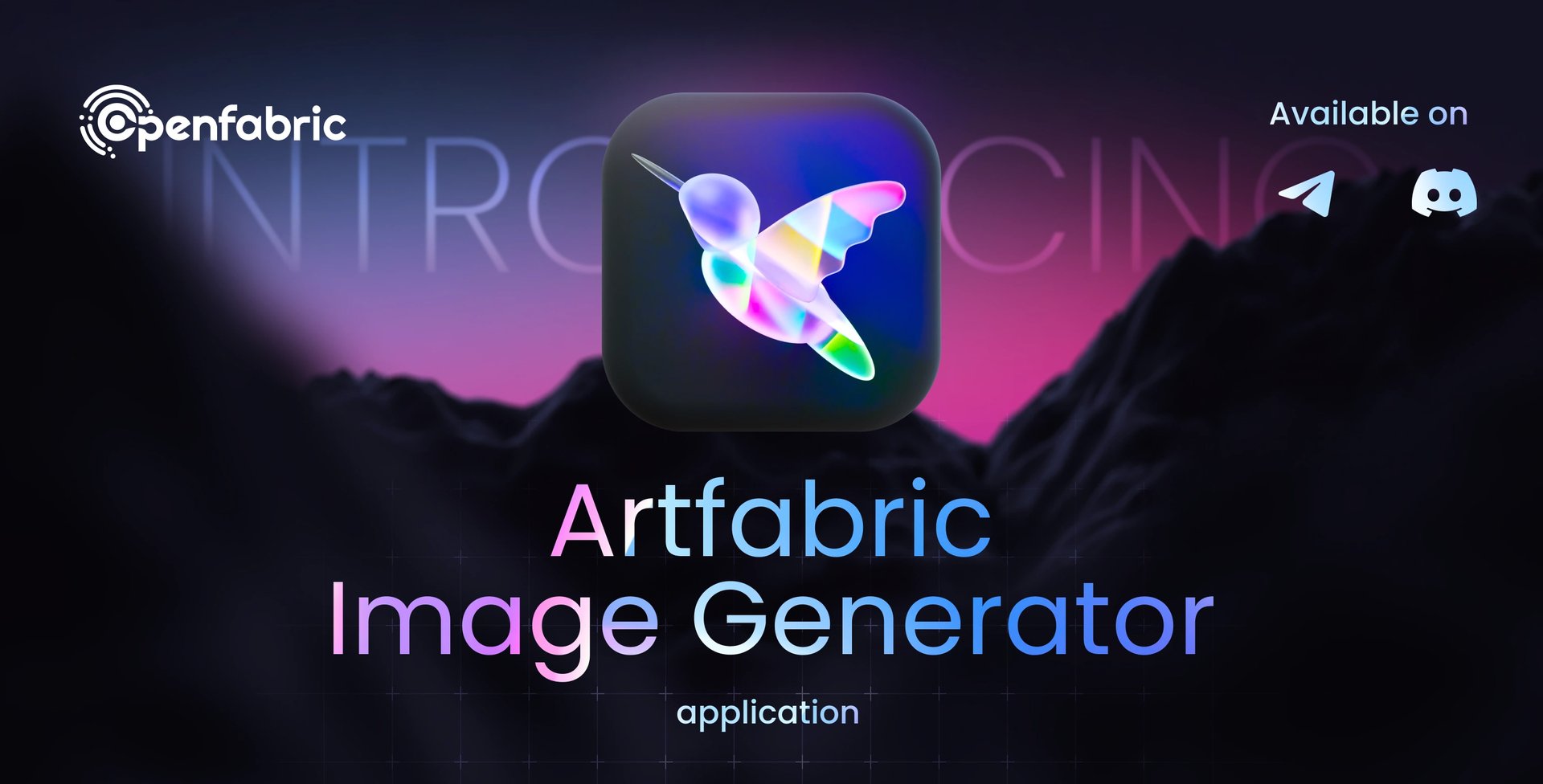
Soundfabric AI
Soundfabric AI aims to generate music from text prompts using natural language processing and machine learning. It produces melodies, rhythms, and lyrics based on written descriptions. Accessible on smartphones, laptops, desktops, Discord, and Telegram, it allows users to create music via the /sonify command. The tool seeks to offer a flexible approach to music creation.[7]
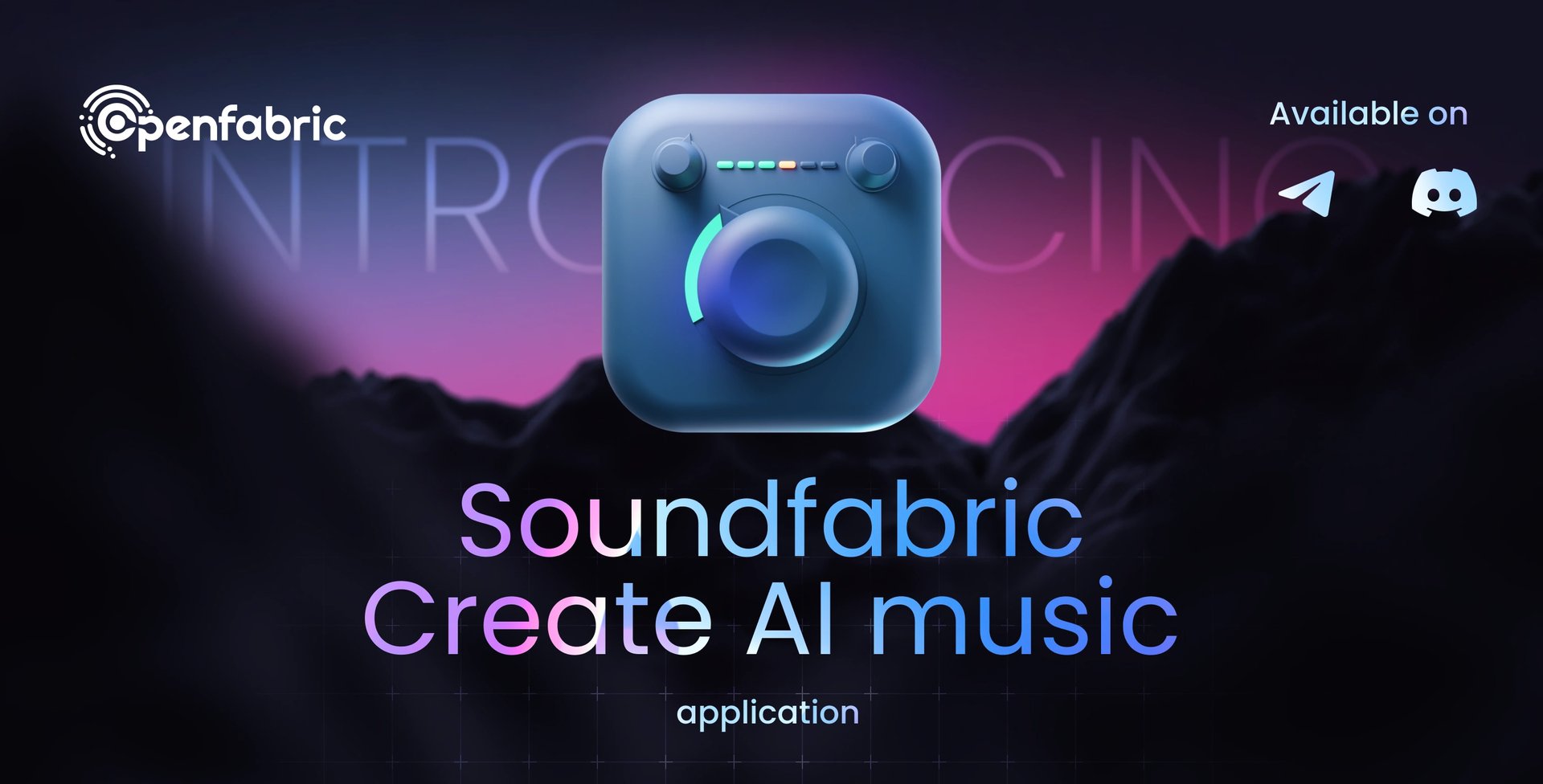
QRfabric AI
QRfabric AI aims to generate and customize QR codes for accessing information like websites and event details. It provides options to alter patterns and colors. Accessible on smartphones, laptops, desktops, and Discord, it facilitates linking physical and digital spaces.[8]
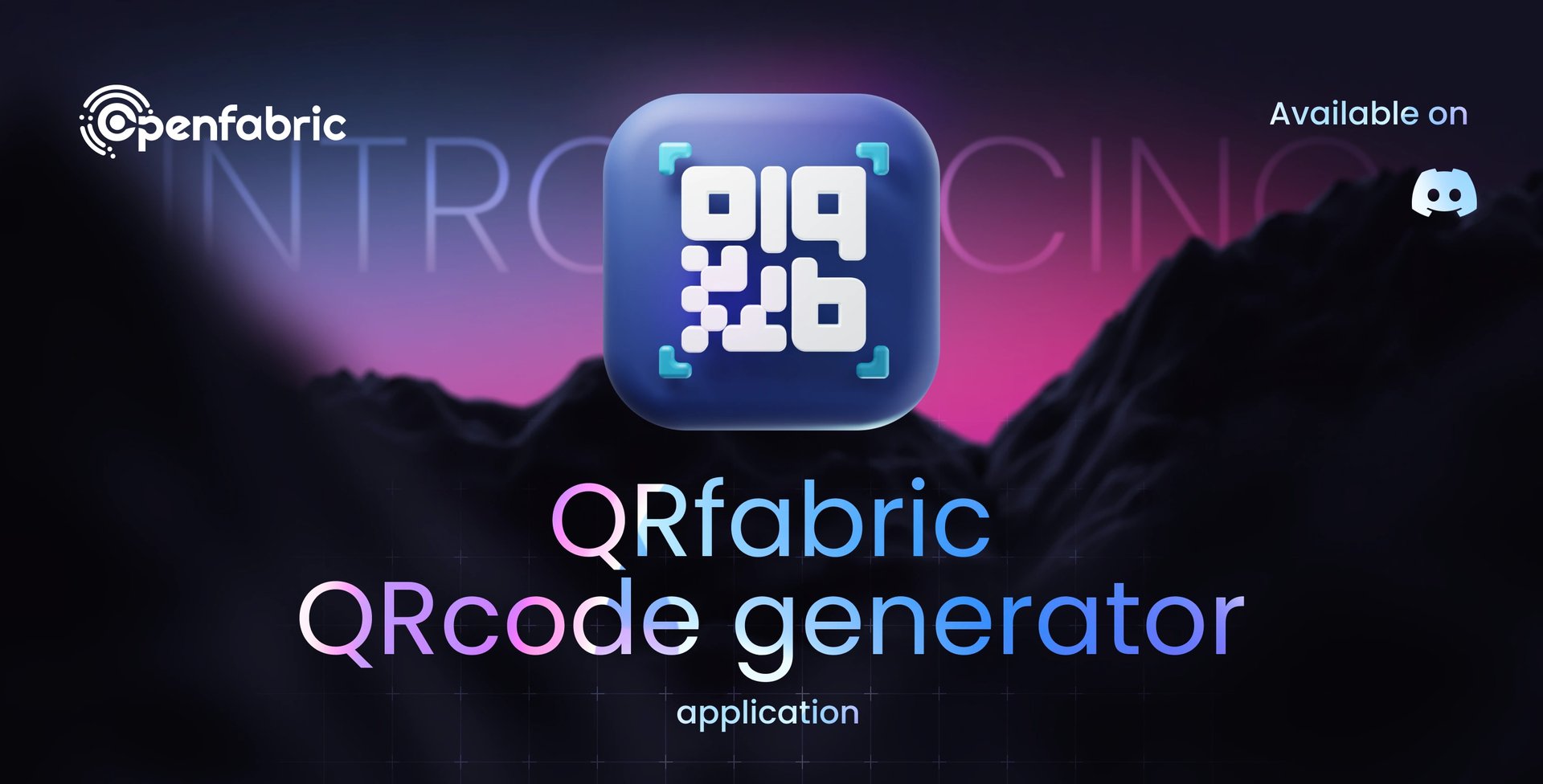
Memefabric AI
Memefabric AI aims to simplify the creation of memes through straightforward commands. It operates on smartphones, laptops, desktops, Discord, and Telegram, enabling users to generate and share memes using commands such as /meme [image prompt] /topic [meme topic prompt]. The tool is designed to offer an accessible platform for meme generation and sharing.[9]
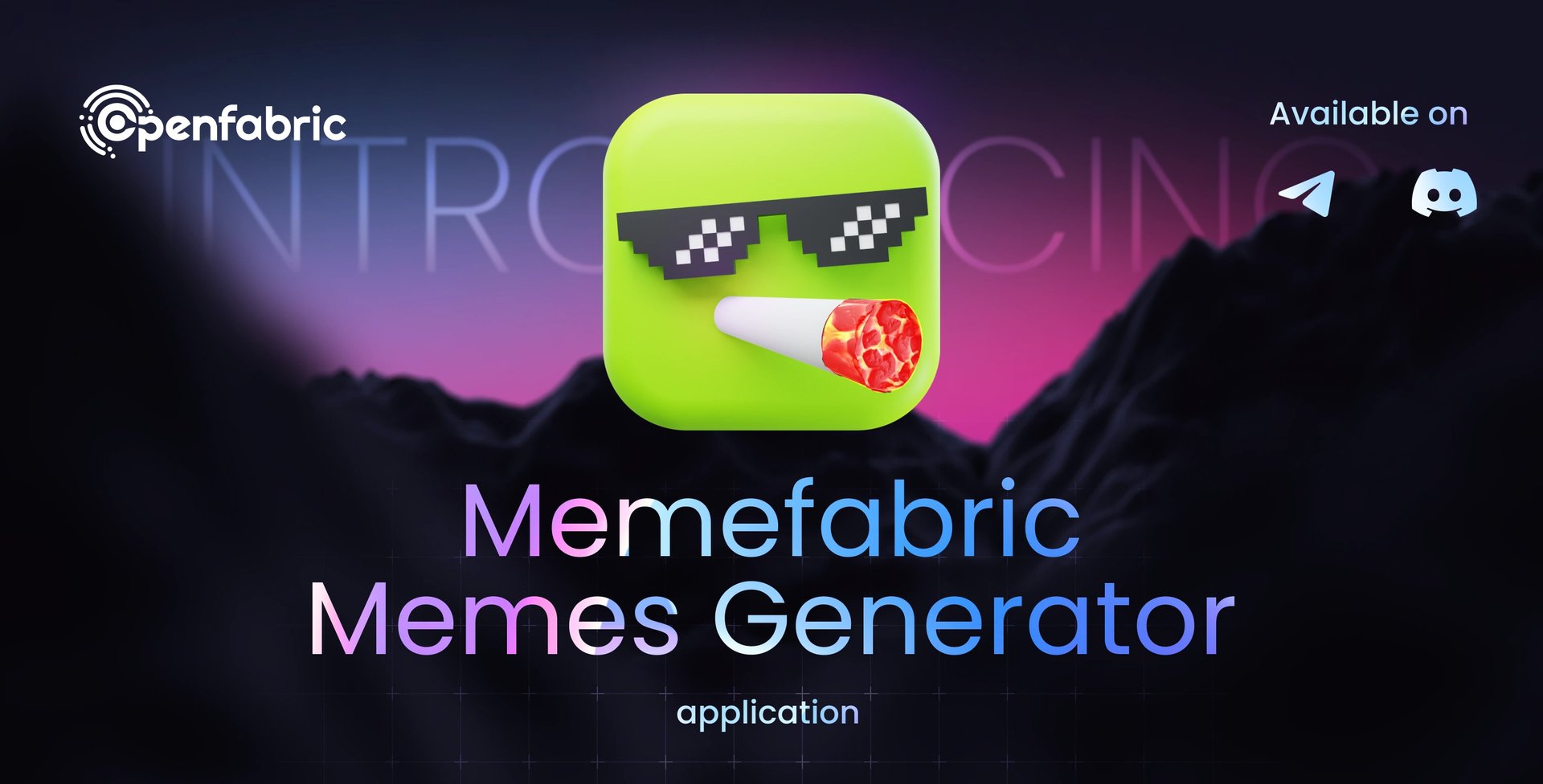
Architecture
Decentralized Operating System
Openfabric AI employs a decentralized operating system (DOS) that is managed by a peer-to-peer (P2P) network of nodes. The system aims to facilitate decision-making through a dynamic consensus mechanism, where the number of nodes required for consensus can vary depending on the decision's importance and security requirements.
The DOS is structured into three layers. The Application Layer aims to manage user interactions and system protocols. The Kernel Layer is responsible for handling AIs, datasets, and infrastructure. The Resource Layer supports essential technologies, such as IPFS, blockchain, and smart contracts, for the allocation and registration of resources.[10]
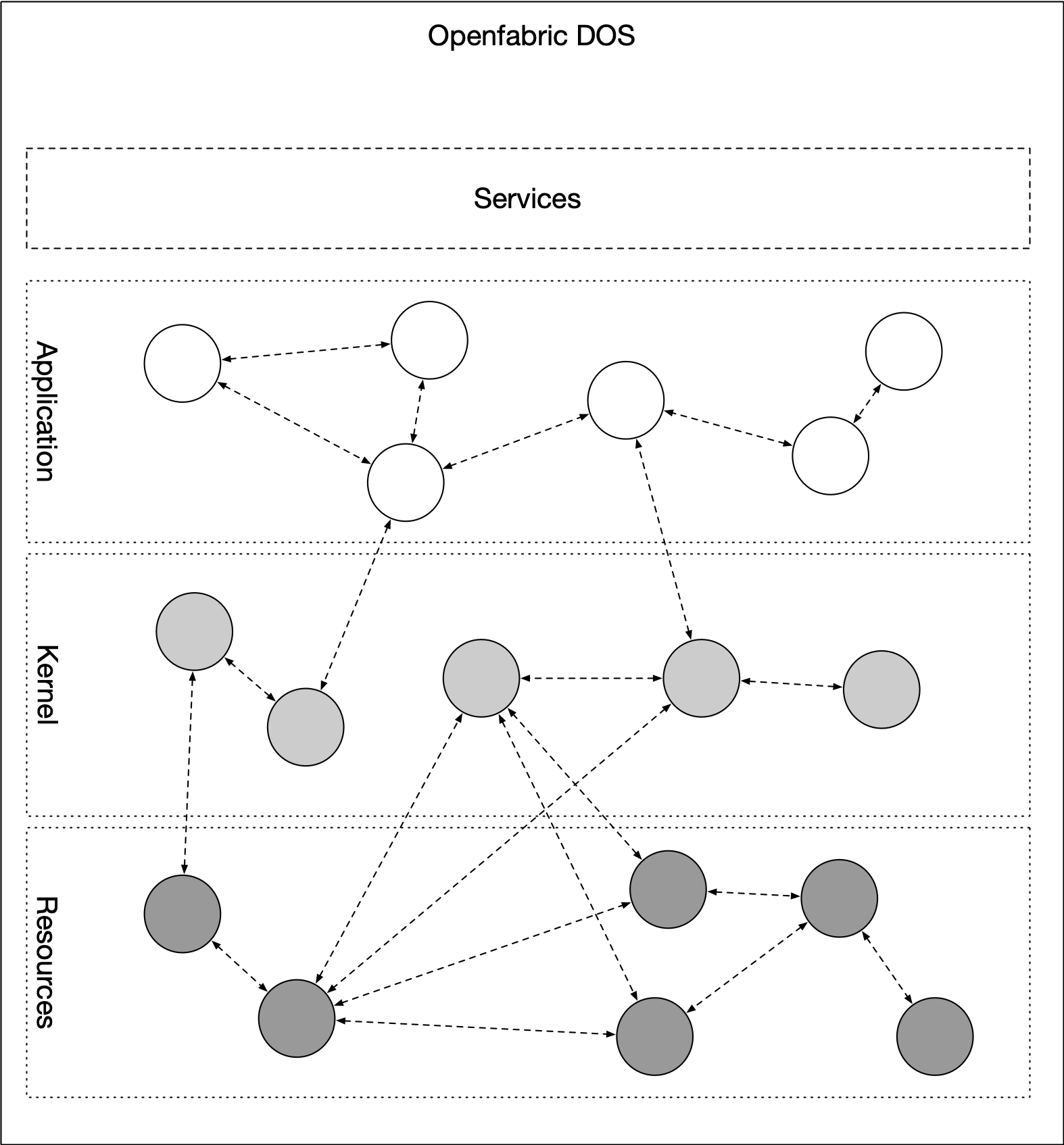
Ontology Connection System
Openfabric AI's Ontology Connection System aims to support decentralization, security, interoperability, and accessibility by using an ontology-based protocol. This protocol helps standardize data formats, which facilitates integration and validation across various AI algorithms.
The system architecture comprises several layers: The Structural Layer defines the core classifications and relationships. The Connection Layer manages concept locations and mappings between ontology versions. The Encoding Layerspecifies the data formats used. The Defaults Layer provides fallback values for properties, while the Validation Layerenforces rules on schema properties. The Restriction Layer imposes constraints, and the Naming Layer provides tags for clarity. The Instruction Layer offers guidance on data input and layout. Additionally, the Versioning Layer manages updates to the schema, and the Template Layer organizes schema elements based on context.[11]
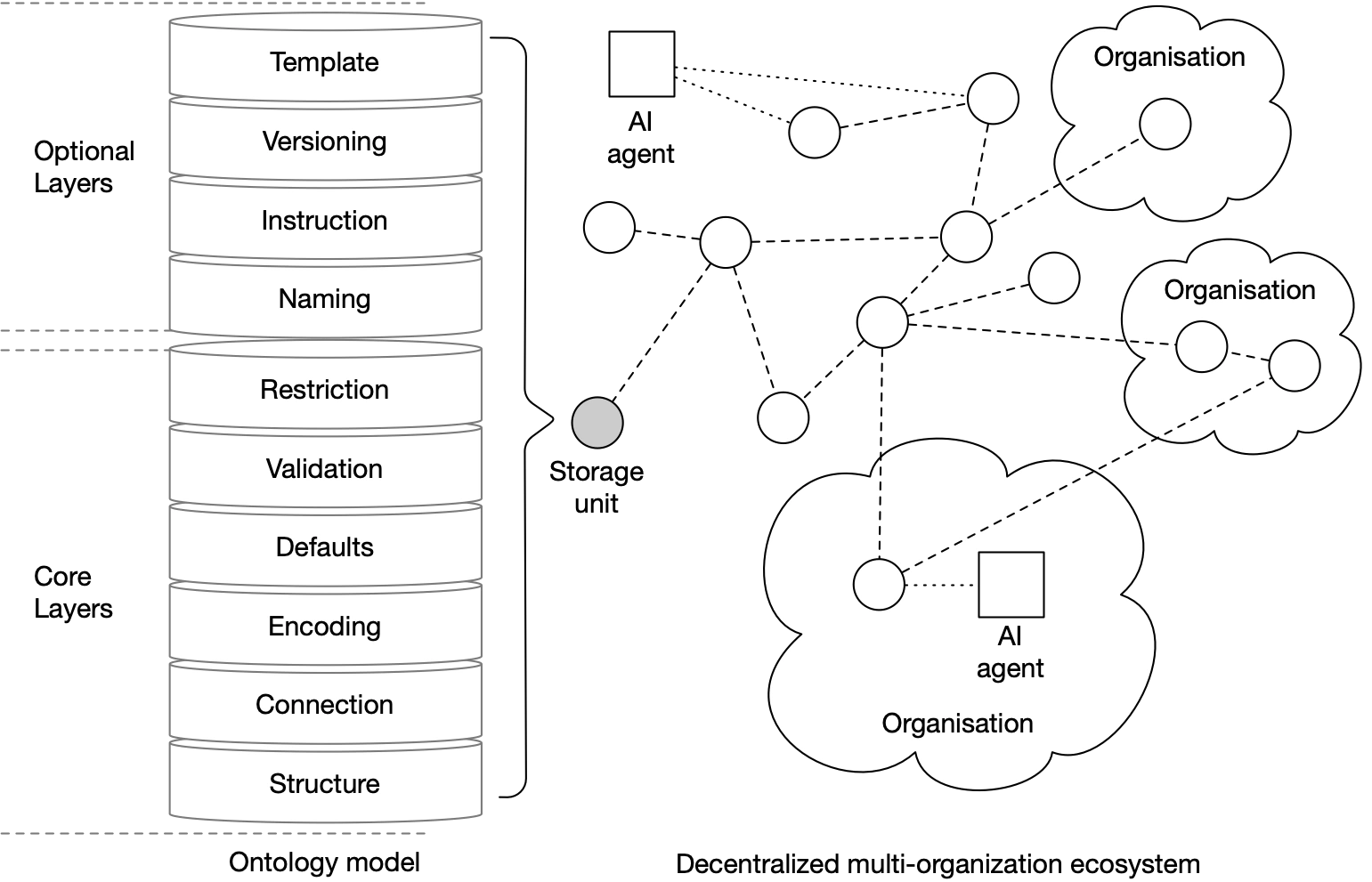
Trusted Execution Environment
Openfabric AI's Trusted Execution Environment (TEE) aims to support scalability by using virtual machines and containers for isolation. Virtual machines provide a higher level of security with greater overhead, while containers offer reduced overhead at the cost of some isolation.
The TEE incorporates additional security measures to address potential risks in a decentralized system. It aims to ensure data privacy and accuracy for users, protect against malicious code for infrastructure providers, and safeguard intellectual property for AI developers.[12]
Tokenomics
OpenFabric AI Token ($OFN)
The $OFN token aims to facilitate network consensus, governance, and interactions within the Openfabric AI ecosystem. It is employed for transactions, staking, and as a medium of exchange.[13]
Utility
The $OFN token facilitates key functions in the Openfabric AI ecosystem:
- Staking: Used by network participants to secure the network, with penalties for misbehavior.
- Rewards: Provides rewards to infrastructure providers, AI innovators, and data providers.
- Payment: Serves as a medium for purchasing services and products on the platform.
- Medium of Exchange: Functions as the internal currency for transactions and trading.
- Governance: Enables voting on project decisions via a decentralized autonomous organization (DAO).
- Exclusive Access: Grants access to exclusive products, early releases, events, and communication channels.[14]
Allocation
The total $OFN supply is 500,000,000 tokens. The distribution is as follows:
- Seed: 25,000,000 tokens (5%) with an 8% release at TGE, 3-month cliff, 18-month vesting.
- Private: 74,000,000 tokens (14.8%) with an 8% release at TGE, 3-month cliff, 16-month vesting.
- Kols: 6,000,000 tokens (1.2%) with a 15% release at TGE, 2-month cliff, 10-month vesting.
- Public: 20,000,000 tokens (4%) with a 17% release at TGE, 2-month cliff, 10-month vesting.
- Marketing: 10,000,000 tokens (2%) with a 10% release at TGE, 2-month cliff, 10-month vesting.
- Liquidity: 35,000,000 tokens (7%) with a 45% release at TGE, 2-month cliff.
- Team & Advisors: 90,000,000 tokens (18%) with no release at TGE, 16-month cliff, 36-month vesting.
- Partners: 25,000,000 tokens (5%) with a 36-month cliff.
- Innovation Fund: 50,000,000 tokens (10%) with a 36-month cliff.
- Ecosystem: 165,000,000 tokens (33%) with a 36-month cliff.[15]

Ambassador Program
The Openfabric AI Ambassador Program seeks individuals interested in artificial intelligence to help promote and expand awareness of AI technologies. Ambassadors are expected to organize educational events, create and share content, and foster local AI communities. They will also engage on social media and provide feedback to the Openfabric team.
Ideal candidates should have a strong interest in AI, good communication skills, and a commitment to community engagement. The program offers opportunities for networking with experts, access to AI resources, and skill development. Applications involve submitting a form, participating in an interview, and, if selected, receiving resources to support their role.[16]
